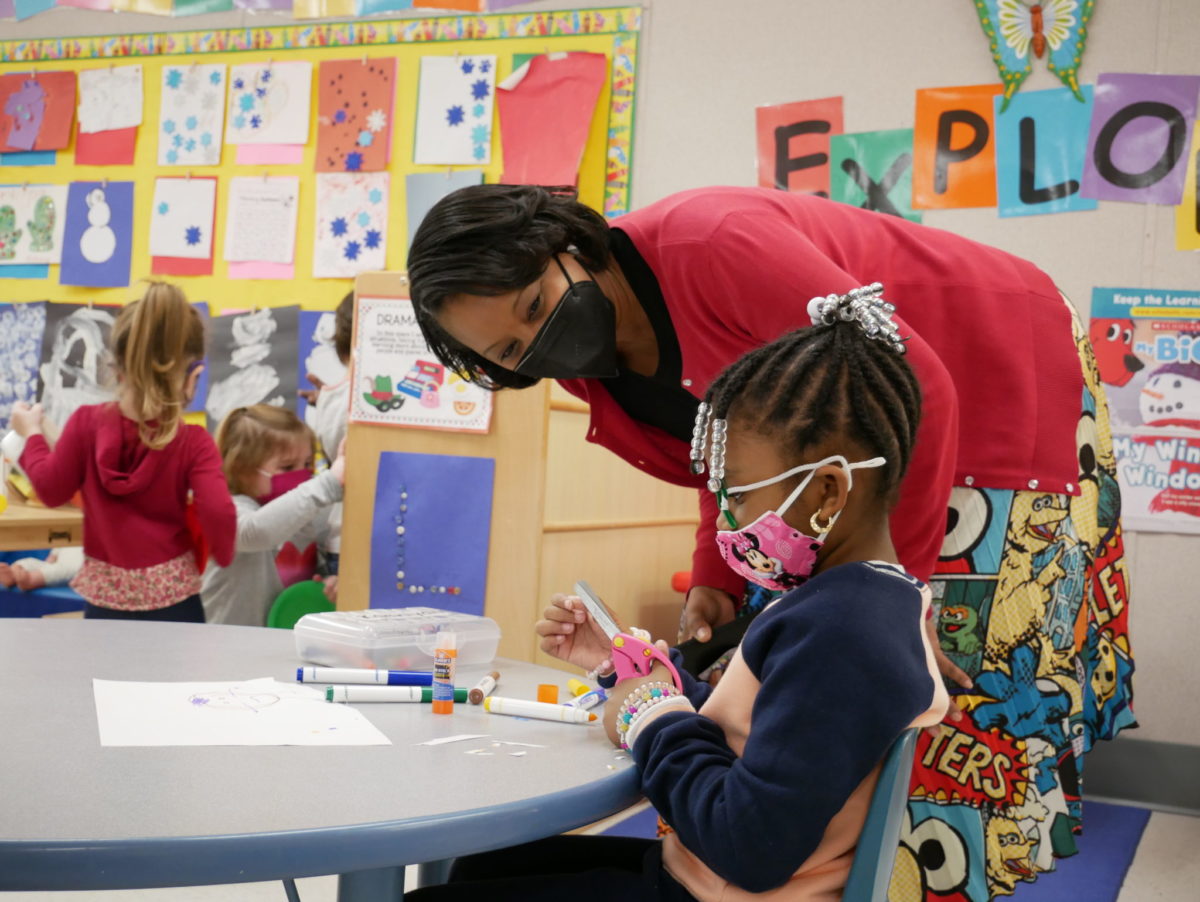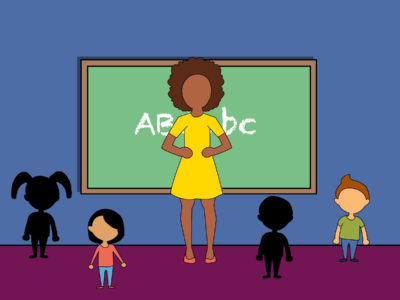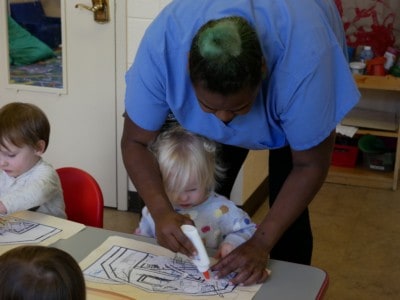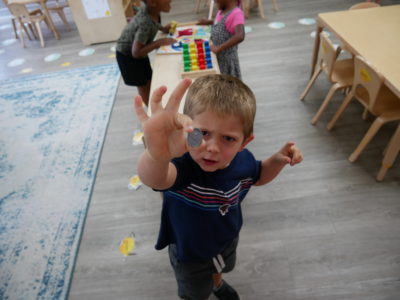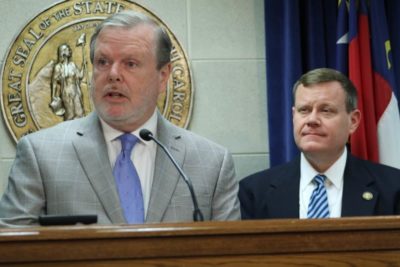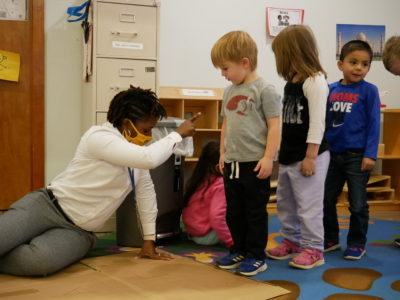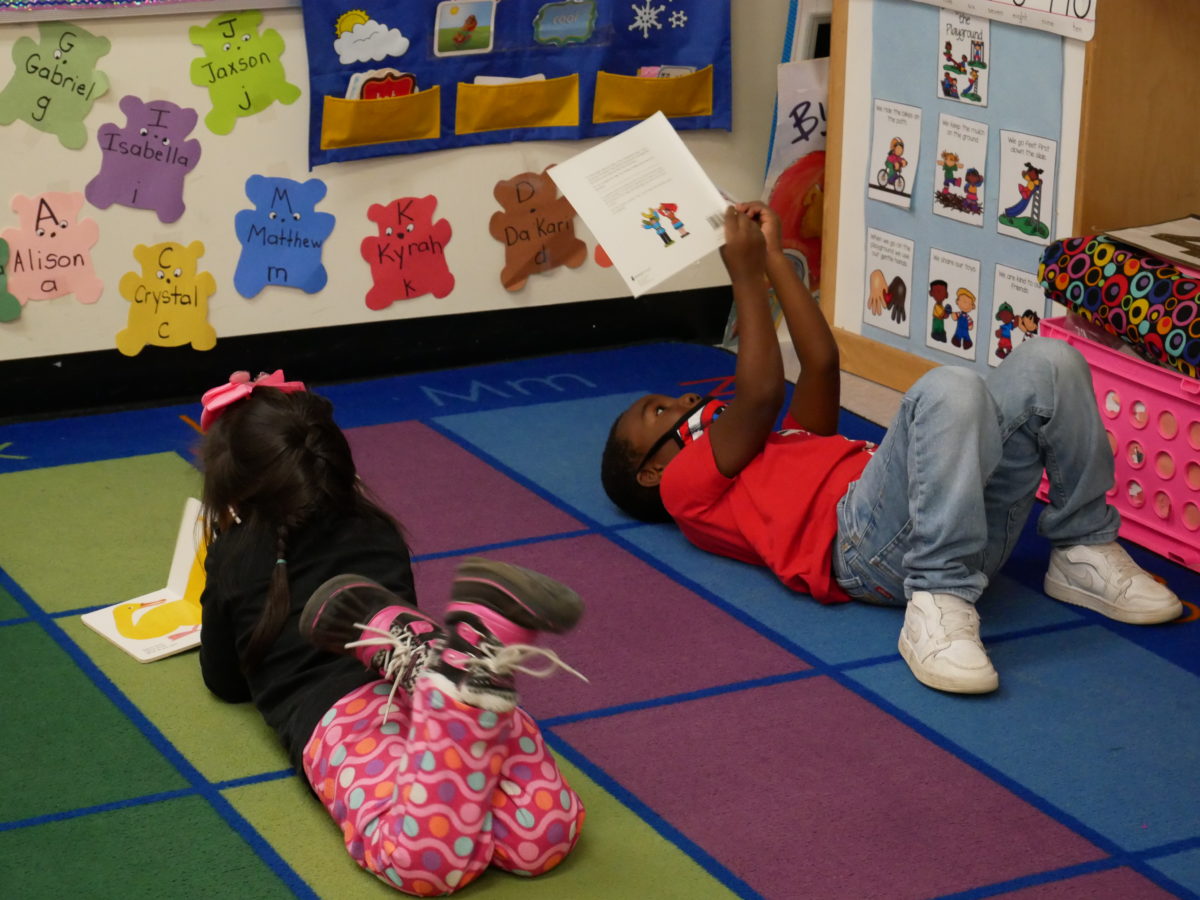
A dwindling early educator workforce. An unstable, inaccessible child care landscape. A generation of young children affected by the pandemic, academically and developmentally. A history of innovations in early care and education. A variety of organizations and agencies with different policy priorities.
These are the realities where state legislators hope to find solutions through a new early childhood caucus, said its co-chairs in the House — Rep. Ashton Clemmons, D-Guilford, and Rep. David Willis, R-Union. Launching this week, the bipartisan, bicameral caucus will study issues and advocate for legislation related to children’s lives from birth to age 8.
This is an especially critical time, Clemmons and Willis said.
“We had lots of problems before COVID, in the early child care space and in the K-12 education space, lots of things we needed to work on,” Clemmons said. “Those are just all exacerbated right now.”
Clemmons pointed to a statewide 15% drop in kindergarten average daily membership at the start of this school year, as well as pre-K enrollment declines. She said she sees “a big storm that is brewing” for next year’s pre-K and kindergarten classrooms — one that will require strategies to help both students and teachers.
When it comes to child care, many programs have hung on with relief funds. But providers are still struggling with higher costs and lower enrollment.
“I think we did some good things, but it was enough for right then,” Clemmons said of the rounds of support last year from the state Division of Child Development and Early Education. Funds from a federal relief package passed in December — $335 million — and the recently passed American Rescue Plan — an estimated $1.3 billion — are on their way, with aims to stabilize and rebuild child care.
Yet even before the pandemic, child care was hard to find, expensive for parents and unsustainable for teachers and administrators. Public funds from state and federal sources, such as subsidy assistance and NC Pre-K, do not cover the full cost of providing early care and education, leaving providers — from home-based facilities to private centers to public school districts — stretched thin.
Willis, a freshman in the legislature replacing longtime education advocate Craig Horn, is also the owner and operator of Kiddie Academy, a private preschool in Charlotte. The pandemic has affected the state’s workforce in a way that highlights the importance of early care and education, Willis said, and he hopes to use his experience to build on this moment and educate other policymakers.
“It’s going to take a bipartisan effort, and it’s going to take all of us kind of doing some heavy lifting together,” he said. “And if we don’t address this sooner rather than later, it’s just going to continue to get worse, until the point where we’re going to be forced into a really bad situation with child care. I don’t think any of us want to see it get to that point. We need to move, and we need to move quickly.”
The caucus has a Senate component, led by co-chairs Sen. Jay Chaudhuri, D-Wake, and Sen. Jim Burgin, R-Harnett, Johnston, Lee. The full caucus membership is below.
The group’s first meeting on Thursday will focus on early literacy, according to a news release from the co-chairs. Presenters will include Ann Goodnight, senior director of community relations at SAS; Trey Rabon, President of AT&T of NC; state Superintendent of Public Instruction Catherine Truitt; and Cyndi Soter O’Neil, senior policy advisor at ChildTrust Foundation. (Go here for EdNC’s coverage on literacy and reading instruction.)
Clemmons and Willis said future issues to explore include early childhood workforce compensation and support, child care accessibility and affordability, pandemic learning and enrollment disruptions, and disparities in quality and resources across the state.
“We’re trying to get a better view of what services and options there are across the state of North Carolina right now, and what’s working well and where we have gaps, and try to plug in those gaps and provide the best early learning experience for every child across the state,” Willis said. “I’d really love to see North Carolina be a model for the rest of the country.”
Clemmons said she hopes the caucus will be a consistent platform for early childhood issues in a space that has several advocacy and philanthropic organizations, and involves multiple state agencies. Both the Department of Public Instruction and the Department of Health and Human Services oversee different aspects of early learning in children’s first eight years.
“It’s easy for it to get very complicated quickly, because … it falls into lots of different places, but there’s not necessarily a voice that’s advocating just for early childhood throughout all those spaces,” Clemmons said.
Early childhood legislative action so far
House Bill 196, the COVID-19 relief bill passed by the General Assembly and signed last week by Gov. Roy Cooper, prohibited the use of federal funds for bonuses for early educators. DCDEE used this funding stream last year — the Child Development Block Grant — to provide forms of relief to child care providers, including educator bonuses. Advocates, educators, and DHHS officials were unhappy that more bonus payments wouldn’t be part of this next round of $335.9 million in support.
“We are disappointed that our child care teachers — who have been on the job every day throughout the COVID-19 pandemic caring for young children and providing and essential service for our state’s workforce and economy — are being prohibited from receiving incentive and retention bonuses,” reads a DHHS statement emailed from press assistant Catie Armstrong. “Child care providers already earn low wages and often lack health insurance, and it is difficult to attract and retain qualified staff even under normal circumstances. We appreciate the House leaders’ expressed intent to address this in the next COVID-19 relief package and look forward to working with them to make bonus payments available to child care teachers as soon as possible.”
Rep. Donny Lambeth, R-Forsyth, who reintroduced the language barring bonuses from the funding after it had been removed, said budget leaders wanted to address compensation needs for various front-line workers in the next round of federal relief, or in the state’s general budget process.
“You could make the same case for police and fire, rescue workers, health care workers, and so we decided not to go down that path in this COVID bill,” Lambeth said in an interview.
House Bill 215 (Senate Bill 217) — filed this month by Clemmons; Rep. John Faircloth, R-Guilford; Rep. Jon Hardister, R-Guilford; and Rep. Cecil Brockman, D-Guilford — would provide $1 million in each of the next six fiscal years (starting in 2021-22) to build an early childhood integrated data system as part of the Get Ready Guilford Initiative, which “attempts to break the cycle of intergenerational poverty and improve individual and population-level outcomes.”
Information from that system, the bill says, would be used for decision-making and securing additional grant funding.
The bill would also allocate $808,000 to a nonprofit — Ready for School, Ready for Life — for a three-year pilot to enhance the quality of early care and education for “infants, toddlers, and preschool-age children” at eight early education providers in Guilford County. The pilot would include planning, coaching, and other resources for teachers, administrators, children, and families with the intent to identify best practices that could be replicated across the state.
House Bill 262 — filed last week by Lambeth, Rep. Donna White, R-Johnston, Rep. Larry Potts, R-Davidson, and Rep. Gale Adcock, D-Wake — would provide an additional $30 million in each of the next two fiscal years to Smart Start, a statewide network of 75 local organizations that administer early childhood funds and programs to address community needs. The bill breaks down the funding to $15 million for activities related to child care, $7.5 million for family support activities, $3.75 million for health-related activities, and $3.75 million for child care subsidy.
“At Smart Start, we are thankful for Representative Lambeth’s leadership on behalf of children and families and his acknowledgement of our network’s ability to reach every county of the state effectively and efficiently,” Amy Cubbage, president of The North Carolina Partnership for Children, which leads the statewide Smart Start network, said in a statement. “Smart Start is ready to help North Carolina children and families recover from the challenges of the pandemic and work toward a bright future for each child in every community.”
Editor’s Note: ChildTrust Foundation supports the work of EducationNC.


